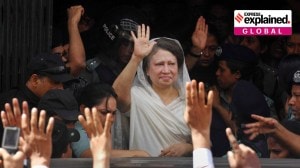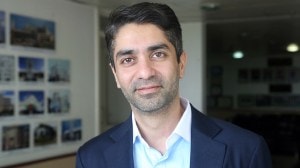The 8 mantra
Will FM heed Economic Survey8217;s caution and avoid a big-spend budget?

The Economic Survey released by the government notes that the economy has moved decisively to a higher growth path. Growth rates of above 8 per cent since 2003-04 have been driven by higher investment and savings rates. Along with economic growth, both per capita income and per capita private final consumption expenditure 8212; the real reasons to value high GDP growth 8212; have risen fast. The sharp acceleration of growth in per capita income now means that real income per capita will double every decade, instead of every generation. Levels of consumption will rise faster than ever before in India. The high growth observed has been driven by high private savings and investment. Private household savings were stable during the 10th Plan period between 23 and 24 per cent. But private corporate savings more than doubled. Private corporate investment went up from 5.4 per cent of GDP in 2001-02 to 14.5 per cent of GDP in 2006-07. The Economic Survey attributes the higher growth path to the full effects of the economic reforms of the 1990s working through the system.
This optimistic note is welcome. But it should not lull the government into thinking that market economies grow at steady growth rates. India has grown at high rates at a time when, as the Survey notes, world GDP growth has been among the fastest. If the world economy sees a cyclical downturn, India will be affected. As the Survey acknowledges, the slowdown in world growth would impact the demand for India8217;s exports and the value of imports. The Survey, put together by the finance minister8217;s chief economic adviser, makes a case for reduction in fiscal deficits. It suggests that this would help reduce the real domestic long-term interest rate. A lower interest rate for government securities, in the short run, would also help in reducing the inflow of foreign capital by reducing the interest gap with global rates.
However, given the pressures faced by the government for expansion in spending, will Finance Minister P. Chidambaram be able to follow the advice of his own chief economic adviser? Further, this advice also implies that the pressure from capital inflows can be reduced by a cut in interest rates. This should be an indication to the Reserve Bank of India to cut interest rates.
- 01
- 02
- 03
- 04
- 05































